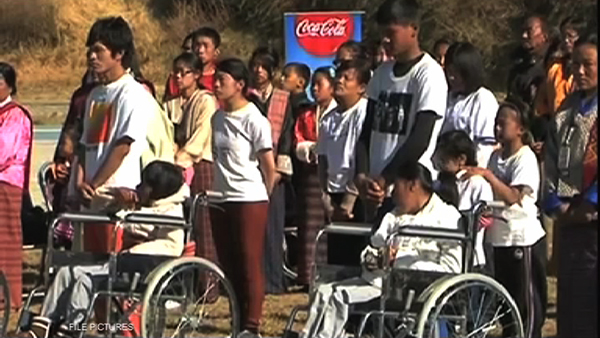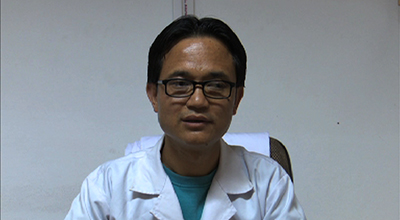 Coronavirus has forced millions of people around the world to limit who and what they touch and stay indoors for time being to reduce the spread of the virus. But for the visually impaired community, these restrictions may create additional obstacles that could contribute to their already existing barriers.
Coronavirus has forced millions of people around the world to limit who and what they touch and stay indoors for time being to reduce the spread of the virus. But for the visually impaired community, these restrictions may create additional obstacles that could contribute to their already existing barriers.
The visually impaired community in the country says maintaining physical distance and minimise touching are a few things they find it difficult to follow.
Lhakpa Dorji, a 32-year-old physiotherapy technician at the Jigme Dorji Wangchuck National Referral Hospital (JDWNRH) lost his vision at the age of 15. As someone who relies on touch and support from people to navigate the world, he said that the potential threats to his existence may have multiplied now that the coronavirus might be waiting on the next doorknob or window sill.
 “Given the current situation, we are supposed to keep a physical distance. But for visually impaired like me, it’s difficult as we are people who require the support of others to walk. The risk is less if we are supported by our family members or people we know. But if it’s with strangers then it’s going to be a problem. But I feel that using a mask will protect us. Secondly, we have been discouraged to minimise touching. But for visually impaired like me, it is hard as we have to touch things for navigation. But for that as well, if we wash hands and use hand sanitizers, it could protect us,” said Lhakpa Dorji, a Physiotherapy Technician at the JDWNRH.
“Given the current situation, we are supposed to keep a physical distance. But for visually impaired like me, it’s difficult as we are people who require the support of others to walk. The risk is less if we are supported by our family members or people we know. But if it’s with strangers then it’s going to be a problem. But I feel that using a mask will protect us. Secondly, we have been discouraged to minimise touching. But for visually impaired like me, it is hard as we have to touch things for navigation. But for that as well, if we wash hands and use hand sanitizers, it could protect us,” said Lhakpa Dorji, a Physiotherapy Technician at the JDWNRH.
Lhakpa shared that in the midst of the pandemic, those who live with disability will be at a double disadvantage if they happen to catch the virus.
“Not just visually impaired but if people living with various other disabilities happen to be quarantined or left in isolation then I feel it’s going to be way more difficult. Generally, for people who are quarantined or isolated require just one doctor but for people living with disabilities, they would require a lot of health professionals adding pressure to the already existing burden to the health professionals. Moreover, the government would end up spending more money on people like us,” he shared.
Other people living with disabilities with whom BBS talked to echoed what Lhakpa shared. While the government approved the National Policy for Persons with Disabilities in August last year, Lhapka feels there is a need to include ways and measures to help people with disabilities cope with new diseases in the future.
“From my experience to date, there has been a lot of new diseases including coronavirus. And now that Bhutan already has a few positive cases, I feel that for people living with disabilities, there is a need to have something in place for us to overcome and cope with challenges and difficulties during a pandemic. There is a greater need to have discussions amongst people living with disabilities together with experts to come with measures so that in the future we are ready and need not worry when we have an outbreak of such diseases,” he added.
An expert with the World Health Organization has warned that unless governments and communities take action, discrimination against people with disabilities could increase during the COVID-19 pandemic.
As of today, there are nearly 16,000 people living with disabilities in the country.
Sonam Pem








